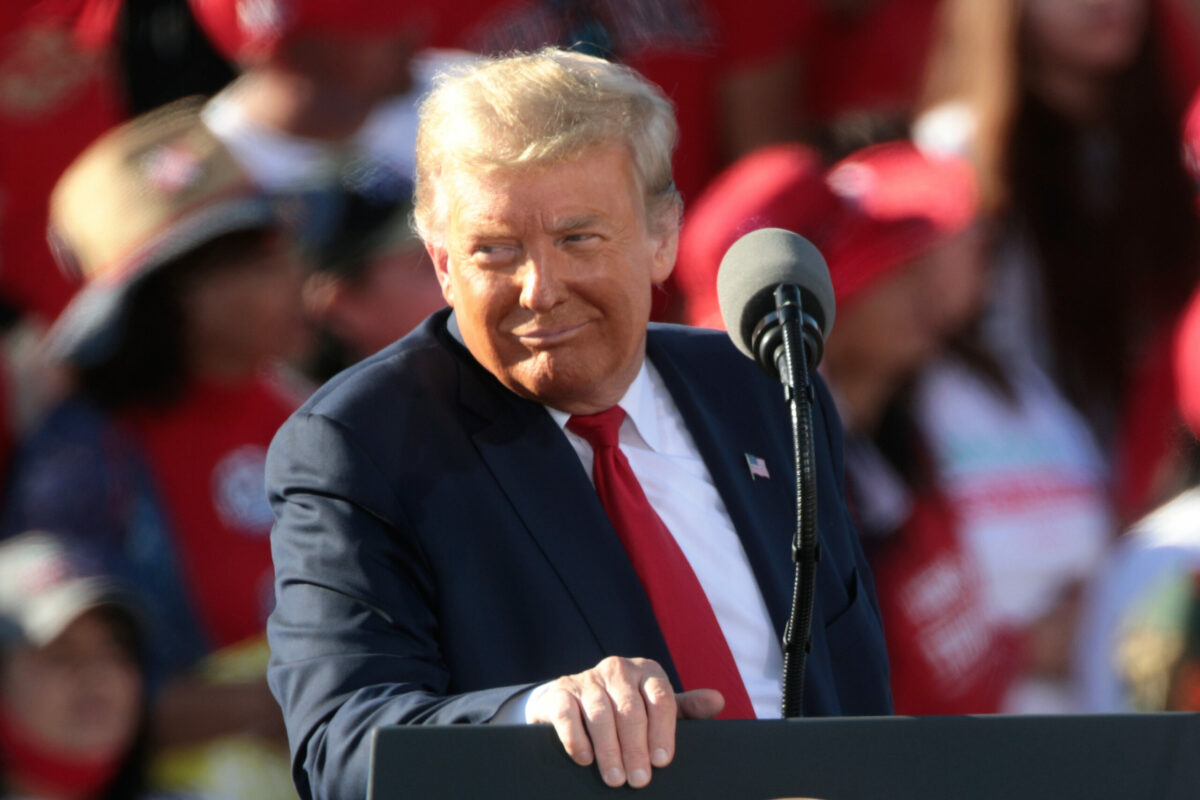With a quick succession of headlines last week, the New York Times quietly unveiled a new chapter in its Trump coverage — the paper was suddenly calling out his lies.
“In Turning on Liz Cheney, G.O.P. Bows to Trump’s Election Lies,” a Times headline read. The next day, the Times published, “Cheney’s Replacement Repeats Trumps Lies as Party Looks Ahead.” (In a nostalgic twist, the online headline for that article referred to “False Claims.”) And the following day, a print subhead for a front-page Times article read, “Party Is Banking On Pushing Elections Lies.”
The good news: Beltway journalists no longer seeking access to the Trump White House are now detailing his “lies” in news coverage:
- “The 15 Most Notable Lies of Donald Trump’s Presidency” (CNN)
- “Legacy of Lies — How Trump Weaponized Mistruths During His Presidency” (ABC News)
Last week, the Associated Press reported, “Allegiance to a lie has become a test of loyalty to Donald Trump and a means of self-preservation for Republicans.”
The bad news: The press should have been doing this for the last four years. Instead, they played purposeful semantics games. Burning through the thesaurus, journalists opted for watered-down phrases such as “falsehoods,” “false claims,” “inaccurate claims,” “alternative facts,” “alternative reality,” “unsupported claim,” and “erroneous description.“
It was a deliberate decision to turn away from the truth —and from accurate language — while covering the most dangerous president in American history. Afraid that calling Trump a “liar” in straight news reports would spark cries of “liberal media bias,” the press capitulated. In the process, Trump used his avalanche of untruths to chip away at our democratic institutions.
Because there’s been no explanation from media outlets for their recent “lie” flip-flop, we don’t know if the change in language only applies to Trump’s lies about the 2020 election, or for the lies he tells about all topics, all the time.
Note that this word-choice debate isn’t just about Trump. Today, we’re seeing journalists maneuver to avoid being honest about today’s radical GOP — most notably how the press is tiptoeing around the right-wing’s open and drastic voter suppression movement, politely referring to it as “voter restrictions,” an effort to “limit voting,” or the GOP having concerns about “election security.” A straight line exists that connects the media refusing to call Trump a liar, and the media now refusing to call the Republican strategy of “voter suppression” for what it is.
The recent, belated embrace of “lies” simply confirms that news outlets could have, and should have, been doing this for years. There was never a coherent reason not to. Recall that as he prepared his retirement from the Washington Post as editor this winter, Marty Baron conceded the daily should have called out Trump’s lies. His reasons for why the paper failed to do so were entirely unconvincing, though. It seems clear the Post just didn’t want to fight that fight while Trump was in office.
And yes, access was likely a driving factor for the purposeful, four-year obfuscation. Do you think the Times’s Maggie Haberman would have received privileged access to Trump if each day her employer had been publishing “Trump Lies” headlines?
Instead, Times editors produced pointless phrases such as:
- “Trump Misrepresents”
- “Trump Falsely Claims”
- “Trump’s Baseless Claim”
- “Trump’s Falsehoods”
- “Trump’s False Claims”
- “Trump’s Inaccurate Claims”
When Trump lied without pause during his presidential debates with Joe Biden last year, it was crickets from the press. When Trump spent most of 2020 lying about every aspect of a public health crisis, we never saw a single “Trump Lies About Pandemic” news headline from a major news organization. In office, Trump lied about doctors trying to “execute” healthy newborn babies in the delivery room. Trump even lied about 9/11, and lied during an address to West Point cadets, and the press let him.
And the New York Times led the way in normalizing his atrocious behavior. The incredible part is that during portions of the 2016 campaign, the paper’s executive editor Dean Baquet actually bragged about how the Times was comfortable calling Trump a liar, and that using “falsehoods” didn’t adequately capture the damage Trump was doing to the truth. Specifically regarding Trump’s birther claims against Barack Obama. “I think to say that that was a “falsehood” wouldn’t have captured the duration of his claim, to be frank, the outrageousness of his claim,” Baquet told NPR in September, 2016. “I think to have called it just a falsehood would have put it in the category of, to be frank, ‘usual political fare.'”
After Trump won his unexpected 2016 victory, Baquet and the Times then sprinted into a retreat and spent most of the next four years pretending it wasn’t fair to call out Trump’s lies in the news coverage. Suddenly, “falsehoods” was the preferred newsroom describer, and the media succumbed to its defining failure of the Trump era.
Here’s Baquet in 2018, just two years after boasting how the paper aggressively treated Trump’s lies:
The word “lie” is very powerful. For one thing, it assumes that someone knew the statement was false. Another reason to use the word judiciously is that our readers could end up focusing more on our use of the word than on what was said. And using “lie” repeatedly could feed the mistaken notion that we’re taking political sides. That’s not our role.
It wasn’t the Times’s “role” to report accurately about Trump’s lies, because that would mean the paper was “taking political sides.”
That’s the definition of institutional failure.
This article was first published at Press Run and is reprinted with permission.
